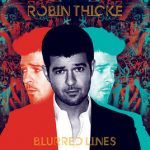Copyright’s Substantial Confusion
 A few weeks ago the 9th Circuit issued its decision in the long-awaited “Blurred Lines” case, Williams v. Gaye, and the reaction has generally ranged between dismay and anger. Here is a quick summary of the decision. The consensus among copyright lawyers, with some exceptions, appears to be that the original jury verdict against Pharrell Williams and Robin Thicke threatens to make musical styles copyrightable, that the majority on appeal got the law wrong, and that the dissent is correct that the jury verdict should have been reversed.
A few weeks ago the 9th Circuit issued its decision in the long-awaited “Blurred Lines” case, Williams v. Gaye, and the reaction has generally ranged between dismay and anger. Here is a quick summary of the decision. The consensus among copyright lawyers, with some exceptions, appears to be that the original jury verdict against Pharrell Williams and Robin Thicke threatens to make musical styles copyrightable, that the majority on appeal got the law wrong, and that the dissent is correct that the jury verdict should have been reversed.
I disagree with some of that, but I want to take this post in a different direction. I’ve been doing a lot of thinking and reading lately about the development of the test for copyright infringement over the course of the 20th century. Williams v. Gaye is, I believe, merely the predictable outcome of the 9th Circuit’s approach to proving copyright infringement, an approach that copyright scholars have been complaining about for a long time. But it’s worse than that. As Rick Sanders spelled out in a recent post, all of the modern tests for proving infringement by copying are deeply problematic. What is particularly intriguing with the Williams case is that the approach the dissent seems to be recommending actually pre-dates the modern caselaw. It’s the one that the modern test — first spelled out in detail by the Second Circuit in Arnstein v. Porter — was designed to replace. Look at the cases the dissenter, Judge Nguyen, cites—many of them were decided before Arnstein. And although I agree with the Williams majority’s assessment of the lack of support for the dissent’s argument, I think it’s no accident it has resurfaced.
A warning for non-IP-interested readers: this is going to be a long, hard slog through the weeds of copyright law, maybe several long hard slogs. I also have some things to say along the way about the development of the law generally over the last hundred years. But consider yourself warned.
